Life after Postal: Coaching Landis and a new Endeavour - part 2
In the second part of our interview with Robbie Ventura, the former US Postal pro tells Mark...
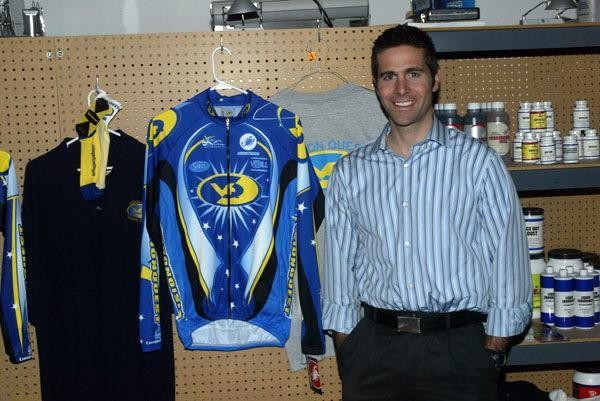
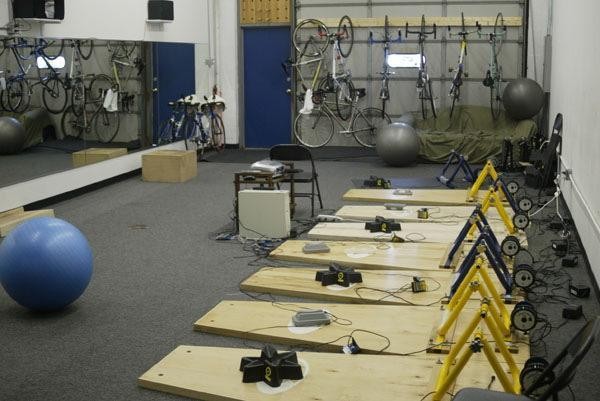
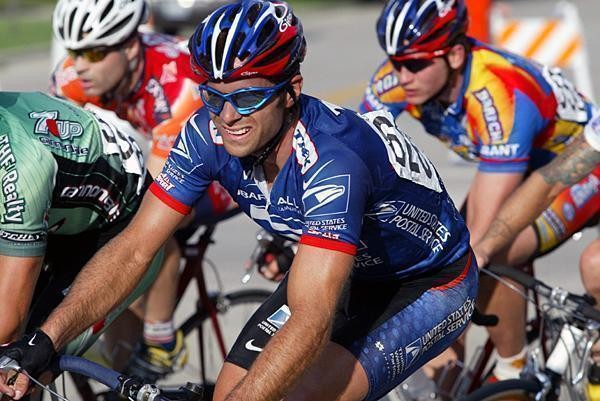
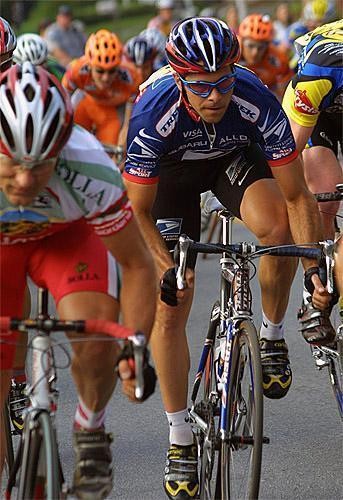
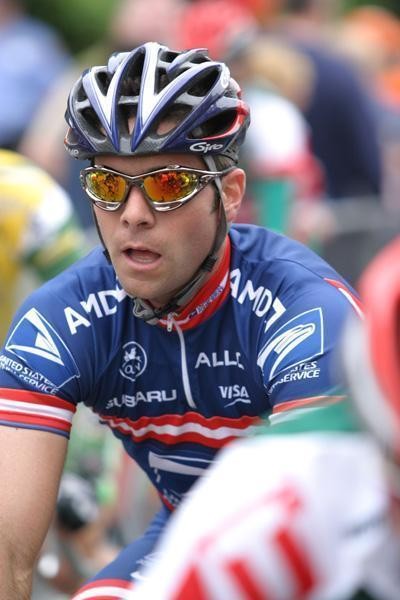
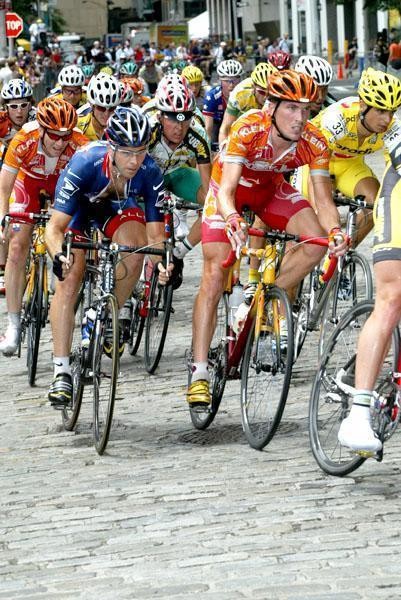
An interview with Robbie Ventura, February 16, 2005
In the second part of our interview with Robbie Ventura, the former US Postal pro tells Mark Zalewski about his involvement with the Endeavour team, his thoughts on the state of cycling and his hopes for his burgeoning coaching business, Vision Quest. [Part 1 is here]
A new Endeavour
Cyclingnews: Last year Endeavour was a top amateur team that even rivaled some of the pro teams. Now they are making the perilous jump to the pro ranks. What's your involvement? What do you hope to bring to the program, and where you see the team down the road?
Robbie Ventura: I just hope I don't screw it up to tell you the truth! They had a great blueprint - the number one amateur team in the country. Now they've turned Division III and we hope that they are not necessarily the number one team in the country but are in the hunt. We did something different than most teams. We didn't go out and hire all the best riders that we could with the budget we had, we took a different approach. We said let's hire athletes from the Midwest, our area, or athletes that can come to our area and stay. That way they can train together, race together, spend time together and become a team, a real team. As a professional, being on the Navigators, Saturn and US Postal, a lot of times we go to training camp and then boom, we go to a race, go home, go race... and to me it's great if you are with the same guys for five/six years. But this sport has so much turnover that you might have fifty percent of the team new each year. And there is not enough time at training camp to learn one another. And learn the arts of different things - how to do a lead out and practicing it so when a big stage in Redlands comes, it's been done before. And that's our idea, to field a really strong regional team.
Another thing is most of the kids have college educations. Not that it's a prerequisite for anything, but they went to school together and are all well spoken and understand their role and commitment to the sponsor. To me, we have the makings of something that is special. I've had a lot of great experiences with a lot of great teams - I'm taking all of those combined with the best directors I've had and mash that all together and create something that these guys will respond to.
CN: What is the plan for the Endeavour team this year?
The latest race content, interviews, features, reviews and expert buying guides, direct to your inbox!
RV: The plan is that we want to a full NRC schedule: Redlands, Georgia, Philly, NYC, San Francisco, Downers Grove - and then hit the smaller ones as well: Joe Martin, Merced, Nature Valley and Superweek. Our sponsors are from the Midwest: Bissel, Advantage Benefits and Endeavour, so we want to be exposed in those markets as well. Winning some smaller local NRC races will be good, and having some of our amateurs out there with our pros... but this is to just get our feet wet. This is my first crack at it and I'm nervous! The riders are [mostly] neo-pros. Eddy and Brian Sheedy are the only professionals on the team returning. The rest of them are all amateurs who are taking their first shot at this. We've got a bunch of young blood... including the director! It's gonna be a learning process, but it's going to be so much fun.
We had a meeting, and just watching the kids walk through the door, getting their booklet and polo shirt - all these thoughts came back to me. I was so excited for them - some of them were nervous, some of them were excited, some of them were trying to make sure they don't give too much away. All of these things I remember doing as a young professional when I went to training camp! I don't think any of the athletes have any errs about them, and they have some great leaders. Frank Pipp, Brian Sheedy and Eddy Hilger are great leaders. And we've got Karl Menzies and Richard England from Australia who rode well at Superweek last year. They were just outstanding. And in the Sun Tour, I think Menzies was leading it for over half of it.
CN: What do you think will be the biggest obstacles facing you and the team in this first year as a professional squad?
RV: It's a long year, a long season for a Division III pro team. Starting in February - right now they are down in Tucson - and what happens is you just get so excited for the beginning of the year. You start riding more than you've ever ridden. You start doing things like you've never done before, thinking that now that I am a pro, I should start training a certain way. And no matter what you tell them, they are down there near Gord Fraser and Sayers and people from T-Mobile, and these people are doing six or seven hour days. These guys are going to think that's what it is going to take. Some can handle it, and some can't. But if you're racing now, you have to race like this through September. It's a long year for the personalities, for people to have good form, and it's a big opportunity for people to get tired. It's coordinating the racing and the resting, so that the team is good for the entire year, and not having all the team be good at one time, because that means they will all be bad at one time.
To find that balance - and then all the logistics of it. This is the first year I've been on the other side of the fence. Just driving! I'm directionally challenged! (laughs) I get lost in a velodrome! My mother-in-law bought me a GPS for Christmas and I told her, 'You just saved our team!'
CN: What are some of the signposts for you that will indicate a successful season for the team?
RV: There are so many levels. The sponsors renewing because they are happy with the guys and the team's brand. If they are good spokespeople and have represented the team well, and given one hundred percent. That would be a success, if you can get the most out of your riders. If you can say at the end of the year we did everything we could, and we lost or won. Prepare properly, race properly, tactically be smart, have everything work well, and then wherever the cards fall doesn't matter. Not being a success would be to not turn over every stone,.
In terms of actual results, if our team was in the top five of Division III teams, that would be a tremendous success. I think winning a NRC race will be a success for us - any one of them. To win is a difficult thing. And I put a priority on winning something, rather than just being in there. I think always being in there is a lot easier than to win something.
The state of the sport
CN: Where do you see U.S. cycling now? Is it headed in the right direction or regressing?
RV: I think U.S. cycling is fine, doing good. I think [USA Cycling CEO] Gerard Bicseglia is a phenomenal guy. I heard him talk at the Tour de Tucson dedication dinner, about Bob Roll and cycling in general. To have someone who is that passionate and that excited about our sport, leading our federation, is a good thing. I think the guy has the right energy and right attitude about bringing this sport forward. As far as my level and the local scene, I love it. Obviously the junior programs are resurfacing - more junior teams and more junior races. There were some lean years where I would see three or four juniors at a bike race. Now I see a whole flock of young kids. There's not a lot in that 12 to 16 group, but we have a massive under-12 group. A bunch of little rugrats running around at the velodrome. Watching kids ride their bikes and give 100 percent, is such a fun thing to do. It reinvigorates us as adults! Now I have two kids myself, my daughter Luna and my son Enzo. Watching my daughter ride is a great thing, it motivates me to ride.
Hopefully we'll get some Pro Tour races in this country. I think that would be a shot in the arm. I think we deserve them. We have some great venues like San Francisco, Tour de Georgia, Philly. I think cycling in the U.S. is growing - more Europeans and Australians come over. We've had some of the greatest riders in the world race here. It's elevated to the level where Jelly Belly has Australians riding for them, we have two Australians riding for us. Navigators has a host of different athletes on their team. It's a place where people are coming to race their bikes. Good prize money, and the level is very, very high. Redlands is an example. The fact that Tom Boonen and others come over to do Redlands and they don't even place. And now they are winning huge races in Europe. I think people in other countries are getting nervous about how the level just keeps coming up [here].
I know for myself, I was in the best shape of my life last year and I went to some races where I just struggled. It was so hard to stay with the group. Ten years ago I didn't have half the strength I have now, and I was able to stay with the group and do ok. I don't see it stopping. As we become more educated as coaches and athletes become more educated with numbers, the level is going to keep increasing. I'm glad I don't have ten years left of this insanely hard racing. I'm ready to step back, watch it go and support it - push it along.
CN: Along those lines, what needs to happen in order to keep the sport progressing in the right direction? Is it on the corporate level, grass roots level or both?
RV: I think all levels need to maintain. From the top, pro racing sponsors, athletes, high-end races need to keep growing. And it will in the support structure is behind it. Lance Armstrong, most importantly, stays really involved in the sport - whether he is racing, promoting or speaking. He's done an unbelievable job for our sport, giving it the launching pad. If he goes away it will lose a bit of its stability. However, people like Floyd Landis and Tyler Farrar can step up and keep the sport moving at a high rate. Like youth programs at the velodrome - they are great because it's a safe, contained environment. Where parents can feel comfortable watching their kids without cars [posing a threat]. Educating athletes about cycling. I go out and do about twenty talks a year, educating people about how amazing it is. OLN chipping in and doing their part by broadcasting it is good too!
It's really about the athletes taking some time - stopping and appreciating what they have, appreciating the fans that come out to watch them, giving back and helping some kids out. If that continues to happen, there is no end in site.
CN: Drugs are a big story this year, both here and abroad. As a coach, what are your reactions to the increased amount of drug offenses in the domestic peloton?
RV: I never believed domestically there were ever any issues - I honestly never believed it. In my mind I thought that there wasn't enough to gain... even in Europe, I thought to myself maybe there is one or two outsiders doing it. But in life there are going to be people who are going to cheat, to take a shortcut and beat the system. Michael Milkin in the bond barket, Martha Stewart! There are going to be cheaters in everything we do. I think the people who cheat in cycling are getting caught, which is a good thing. They are getting caught on a regular basis and it is hopefully going to be stopped. I don't think people cheat in cycling more. I think it is hugely exposed. The cycling media has a huge obsession with it, so any time it happens they go nuts. In other sports, the media is not as insane about positive drug tests. Our sport is more vigorous in out-of-sport testing and athletes in cycling get caught more than in other sports.
CN: As a coach, what do you tell a young rider who thinks s/he has to do drugs to stay competitive?
RV: I've been doing this for four years, and that has never happened. No one has come up to me and said they want to dope. I think they know me better than that. If anyone would consider that, they wouldn't say it to me. And I've never, ever thought one of my athletes was on dope. I've watched their progression as a coach, and I haven't found any crazy numbers that made me scratch my head... If I continue to do this, I might have a situation, and if it happened... I don't know how I would handle it, because the last thing you ever want to do is accuse someone of something they didn't do. That's the worst thing that can happen to someone.
Vision Quest
CN: What are your plans for Vision Quest, both in the short term and farther down the road?
RV: Right now, I've been very fortunate to have a group of athletes that I coach that have been A) successful, B) so supportive of other athletes that have come into Vision Quest and C) just supportive of myself. All of the athletes have one common thread, they are all motivated - and to work with motivated athletes is really fun. Our athletes have sold this business by themselves. If we keep having our athletes do well, everything takes care of itself.
We started in my basement, and then moved to this facility - our second expansion. At the end of this month, we are expanding to double the size in Lake Bluff [IL]. We are in the process of opening are VQ - Bucktown in Chicago, which is going to be an endurance athlete coaching center. We are very excited about it. It is something the city needs - excellent coaching and an excellent facility. We are going to have a big grand opening with some famous cyclists, and it will be a fun venture. I am going to split my time between Lake Bluff and Chicago, and have great coaches there and here. We are also doing a camp in Majorca at the end of February. I am going to the wind tunnel with Floyd - I've always wanted to go to a wind tunnel and learn more about aerodynamics. The more I can learn through using the resources Floyd has, the better I can service the athletes here! We also just had a big software launch that is making our power-based training even more accurate and precise.
This is just a rewarding thing to do. That's why I think so many endurance athletes become coaches. Coaching someone, and having them come back and thank you and say, 'I cannot believe I am here!' Watching a person succeed based on your ideas, is a pretty cool thing. That is why we do it, and why it has been successful. I love doing it. That's why I came in here at 5:00 a.m. this morning - we had nine guys in here. One month, these guys are going 1000 watts and in three months they are doing 1200 watts. People come in here without much confidence - maybe they are older and intimidated to go on rides. And to break them out of their shells and give them confidence is amazing. We've done some life changing by giving them more confidence in their everyday life!
CN: For the endurance-oriented Bucktown location, will that cater to the trendy "City-dweller" and follow the spinning craze?
RV: No, it's going to be the perfect facility for triathletes. For cyclists, [the Lake Bluff] facility makes sense because you can't do big long road rides in the city. We are going to have a lot more indoor activity there. And from what we have learning, triathletes don't mind riding three or four hours on the trainer. And we have this neat multi-rider software, and some trainers from PowerTap. It will allow people to train, have a good time, and focus on specific energy systems, as well as pedal stroke. We are going to have runs out of the shop, performance testing, and some core stuff - but all based around endurance athletics. We even have a relationship with a pool in the area. It's going to be a place where very motivated athletes can get together and train right. It's not based upon getting a good workout, but based around preparing for a triathalon - from beginners all the way through people doing Ironmans.
CN: Where do you see this business five or ten years down the road?
RV: Ten years down the road, I hope that VQ Bucktown is just ripping! That this facility is the mothership and where I spend most of my time. I hope to have a facility in Milwaukee. Increase our presence in Bloomington, IL - and maybe [the other Bloomington in the cycling world, Indiana]. I like the ability to see the athletes whenever I want. All of these places are within a couple hour drive. I think it would be neat to expand to Arizona, and maybe have a winter facility and give people the opportunity to go down there and train.
I'd also like to keep moving on with the Advantage Benefits/Endeavour team. I think that team has a lot of promise, and some great sponsors. We'd like to be the top Division III team in a couple of years and maybe move to a Division II team.
Honestly, five years from now I hope to have a great balance in my life, between work and family. My wife and I have two kids now, Vincenzo and Luna - very Italian. I hope to have one or two more, and just be a good father and husband.
